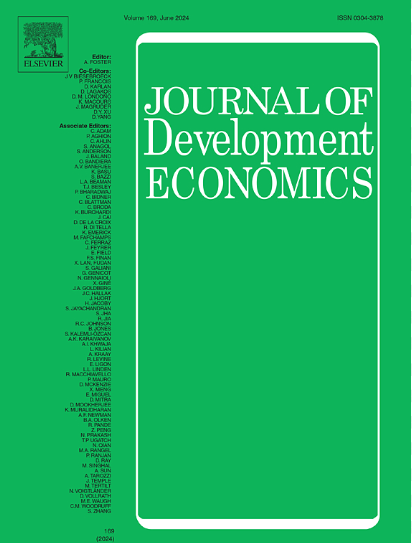血统决定了受教育的机会吗?来自哥伦比亚姓氏的证据
IF 4.6
1区 经济学
Q1 ECONOMICS
引用次数: 0
摘要
我们研究了哥伦比亚在获得高质量教育方面的当代差异的深刻历史根源。我们使用罕见的姓氏来追踪从殖民时代到20世纪初的少数民族和精英的血统,分析祖先是否预示着接受教育的机会。我们的研究结果显示了很强的相关性:拥有非裔哥伦比亚姓氏或土著姓氏的学生不太可能进入高质量学校,而更有可能进入低质量学校,而拥有精英姓氏的学生则表现出相反的模式。虽然我们观察到一些历史上的精英回归到平均水平,但随着时间的推移,对于坚持不懈的精英来说,获得教育的特权仍然存在。我们探索选型交配作为这种机会不平等的持久性背后的机制。我们发现,高质量学校和低质量学校的学生之间的婚姻模式存在显著差异,同性婚姻加剧了教育差距。这些结果表明,在拉丁美洲最不平等的国家之一,根深蒂固的等级制度对当代教育不平等的持久影响。本文章由计算机程序翻译,如有差异,请以英文原文为准。
Does ancestry shape access to education? Evidence from surnames in Colombia
We examine the deep historical roots of contemporary disparities in access to high-quality education in Colombia. Using rare surnames to follow lineages of ethnic minorities and elites from the colonial era to the early 20th century, we analyze whether ancestry predicts access to educational institutions. Our findings reveal strong correlations: Students with Afro-Colombian or Indigenous surnames are less likely to be enrolled in high-quality schools and more likely to be attending low-quality schools, while those with elite surnames show the opposite pattern. Although we observe regression to the mean for some historical elites, privileged access to education holds over time for persistent elites. We explore assortative mating as a mechanism behind this persistence in inequality of opportunity. We find that marriage patterns differ significantly between attendees of high- and low-quality schools, with homogamy reinforcing educational disparities. These results demonstrate the enduring influence of past-rooted hierarchies on contemporary educational inequality in one of Latin America’s most unequal countries.
求助全文
通过发布文献求助,成功后即可免费获取论文全文。
去求助
来源期刊

Journal of Development Economics
ECONOMICS-
CiteScore
8.30
自引率
4.00%
发文量
126
审稿时长
72 days
期刊介绍:
The Journal of Development Economics publishes papers relating to all aspects of economic development - from immediate policy concerns to structural problems of underdevelopment. The emphasis is on quantitative or analytical work, which is relevant as well as intellectually stimulating.
 求助内容:
求助内容: 应助结果提醒方式:
应助结果提醒方式:


